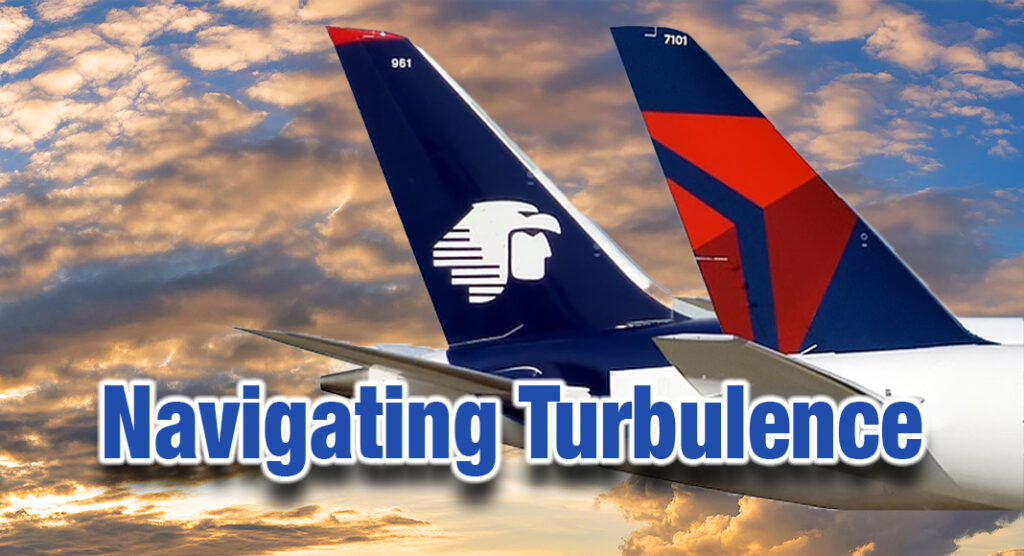
Texas Border Business
As the U.S. Department of Transportation (DOT) considers ending the Joint Cooperation Agreement (JCA) between Delta Air Lines and Aeroméxico, the potential fallout demands immediate attention from city leaders across the Rio Grande Valley and beyond. If enacted, this decision threatens to sever a crucial air travel link between the United States and Mexico, with severe repercussions for local and national economies.
The Joint Cooperation Agreement, currently under threat, provides antitrust immunity (ATI) that allows Delta and Aeroméxico to coordinate routes and schedules, optimizing air travel between the two countries. Should the ATI lapse, the airlines would be forced to cancel or reduce service on 23 frequencies across 21 routes, directly affecting 16 key air routes. This would not only inconvenience travelers by removing approximately 1.8 million round-trip seats annually but also severely disrupt economic activities reliant on efficient cross-border air travel.
The discontinuation of the JCA is predicted to escalate airfares significantly. With reduced competition, the economic damage could reach approximately USD 834 million annually, predominantly due to decreased tourism and business travel. Increased travel costs could deter leisure and business-related visits, further straining economic ties between the U.S. and Mexico.
The implications are profound for mayors and city leaders in the Rio Grande Valley. The potential reduction in air connectivity could hinder local businesses, reduce tourism, and affect employment within the aviation and related sectors. These leaders are thus urged to proactively address the issue, advocating for a reconsideration of the DOT’s impending decision. Their involvement could be crucial in highlighting the local and regional consequences of such a significant policy shift.
The issues at stake extend beyond individual airlines, touching upon economic and regulatory concerns. Delta and Aeroméxico have proposed alternative regulatory measures to penalize specific practices without undermining the cooperation between the U.S. and Mexican carriers. This approach seeks to mitigate the negative impacts on stakeholders across the board.
Furthermore, other airlines, such as Viva Aerobus and Allegiant Air, call for a balanced approach to regulatory adjustments. They advocate for consistency in enforcement to maintain a fair competitive landscape, emphasizing that punitive measures should be thoughtfully applied to avoid unintended consequences.
The potential unraveling of the Delta-Aeroméxico partnership accentuates the delicate balance between national regulatory actions and global airline connectivity. As the DOT decision looms, the involvement of local leaders becomes crucial in shaping the outcome. By uniting in a collective voice, mayors from the Rio Grande Valley and beyond can influence future negotiations, ensuring that local interests are safeguarded in the evolving landscape of international aviation. Their call to action is about preserving existing agreements and securing the future of air travel infrastructure and international cooperation in the aviation sector.
Related:













